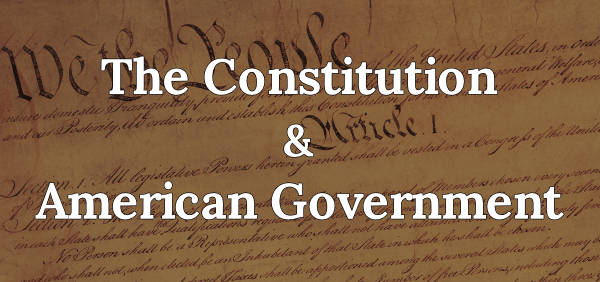The creation of the Department of Government Efficiency (DOGE) under an executive order by President Donald Trump has ignited a firestorm of debate. Critics claim it’s an abuse of power, while supporters hail it as a necessary step toward restoring accountability in an overgrown federal bureaucracy. But as Victor Davis Hanson rightly argues, not only is DOGE constitutionally sound, it also aligns with historical precedent and principles of responsible governance recognized by both secular constitutionalists and biblical stewardship advocates.
The Constitution and Government Efficiency: A Case for All Americans
Whether one approaches this issue from a Christian worldview or from a constitutional, secular perspective, the argument for government efficiency remains the same.
- For the Christian Citizen: The Bible teaches stewardship and accountability in governance. Joseph in Egypt (Genesis 41) is a prime example of an administrator appointed to eliminate waste and maximize efficiency, ensuring that resources were properly managed. Proverbs 21:5 reminds us, “The plans of the diligent lead surely to abundance, but everyone who is hasty comes only to poverty.”
- For the Constitutional American: The U.S. Constitution (Article II, Section 1) grants executive power to the President, and Article II, Section 3 requires the President to “take care that the laws be faithfully executed.” The creation of temporary executive agencies such as DOGE falls within this legal and historical precedent, just as past presidents have done.
DOGE’s mission is simple: identify fraud, eliminate inefficiency, and restore fiscal responsibility—principles that align with both constitutional governance and biblical values.
Executive Authority: What History Tells Us
Hanson dismantles the argument that DOGE is an overreach of executive power. Consider these historical facts:
- Executive agencies have been created before through executive orders:
- JFK created USAID in 1961 without congressional approval.
- FDR and Woodrow Wilson had advisers controlling wartime production without Senate confirmation.
- The National Security Advisor today is not confirmed by Congress, yet wields significant power.
- Executive Orders Are a Longstanding Precedent:
- Roosevelt and Truman issued record numbers of executive orders.
- Biden himself redirected billions in approved border wall funds without congressional oversight.
- Yet, Trump’s creation of DOGE is suddenly “illegal”? The double standard is obvious.
“Unequal weights and unequal measures are both alike an abomination to the Lord.” — Proverbs 20:10
Government cannot operate by one set of rules for some and another set for others. If executive authority is valid for progressive agendas, it must also be valid for conservative reforms.
Exposing the Hypocrisy of the Administrative State
The Left’s primary argument against DOGE is that Trump is refusing to spend funds approved by Congress. Yet, this same tactic has been used repeatedly by Democrats:
- Joe Biden blocked funds meant for the border wall (money allocated by Congress) under the pretext of “environmental reviews.”
- Barack Obama reallocated funds through executive action for programs that Congress never approved.
- State agencies frequently withhold or redirect funds based on bureaucratic preferences, not constitutional directives.
“Why do you see the speck that is in your brother’s eye, but do not notice the log that is in your own eye?” — Matthew 7:3
DOGE simply reverses these abuses, ensuring taxpayer dollars aren’t wasted on inefficiency and corruption. Why does the Left oppose eliminating waste? Because an inefficient government benefits those in power.
Does the Constitution Allow DOGE?
Yes, the Constitution allows DOGE under the executive power granted to the President, and here’s why:
- The President’s Authority to Create Executive Agencies
- The Constitution (Article II, Section 1) vests executive power in the President.
- Under Article II, Section 3, the President is required to “take care that the laws be faithfully executed.”
- The President has the authority to reorganize executive functions under executive orders, which have long been upheld as legitimate unless they conflict with existing statutes.
DOGE, as an advisory and efficiency-based agency, falls within this scope. Unlike a new department requiring congressional approval, DOGE is temporary and advisory, meaning it does not create new laws or assume unconstitutional powers.
- Historical Precedent for Executive Orders Creating Agencies
Many executive agencies were created by executive order, including:
- USAID (JFK, 1961)
- EPA (Nixon, 1970)
- National Security Council (Truman, 1947)
Since Congress has the power to fund or defund agencies, and no law prohibits DOGE’s formation, it remains constitutionally valid.
- No Violation of the Separation of Powers
- DOGE does not legislate or override Congress.
- Congress retains the power of the purse, meaning they can approve or withhold funding.
- Like the National Security Advisor, DOGE’s leadership is not required to be Senate-confirmed because it is not a Cabinet-level position.
- The Argument Against DOGE & Why It Fails
Critics claim that since Congress funds agencies, the President cannot defund them unilaterally.
However:
- Presidents have historically withheld funds (Biden did this with border wall funding).
- If Congress funds an agency, it does not force the President to use all funds immediately.
- The Impoundment Control Act (1974) requires congressional approval for withholding funds permanently, but DOGE is not violating this—it’s simply redirecting efficiency efforts.
Closing Thoughts: Time for Constitutional and Biblical Reform
DOGE’s mission aligns with both the Constitution and principles of responsible governance:
- Eliminating waste and fraud is good stewardship.
- Executive orders creating agencies have historical precedent.
- Imposing accountability in government is a moral and constitutional duty.
- Exposing hypocrisy in the administrative state is crucial.
- Leaders who take the heat for doing the right thing should be supported.
Victor Davis Hanson’s brilliant analysis provides both constitutional and biblical backing to defend DOGE against false accusations. More importantly, it gives Americans—whether secular constitutionalists or Bible-believing citizens—a clear moral and legal argument for supporting efficiency in government.
It’s time for constitutional reform, fiscal accountability, and leadership that prioritizes efficiency over bureaucracy. That’s why DOGE isn’t just legal—it’s essential.





